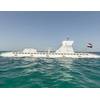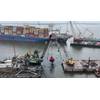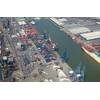NW Europe Fuel oil Imports at 3-year High
A rush to replenish scarce supply of high-sulphur fuel oil (HSFO) pushed Northwest European imports of residual fuel oil to their highest in three years in November, analysts told Reuters.
The Amsterdam-Rotterdam-Antwerp (ARA) area, Europe's main trading and refining hub, received around 450,000 barrels per day (bpd) of all types of fuel oil in November, the highest monthly volume since November 2021.
That compared with an average of 332,000 bpd over January-October this year, according to trade analytics firm Kpler.
Residual fuel oil is one of the key products refined from crude oil and is widely used in the maritime and construction industries. Structural changes in Europe's refining industry have left it more prone to shortages, and therefore leaning more on imports.
Demand for high-sulphur fuel oil for bunkering, or vessel refuelling, has risen in ARA at a time when supply of the fuel has slowed because of maintenance and economic run cuts at local refineries.
"HSFO tightness in Europe is partly attributed to high maintenance levels in the region, specifically concentrated in the Mediterranean," said Royston Huan, analyst at consultancy Energy Aspects.
Huan pointed to incidents at Greece’s Motor Oil Hellas Corinth and Turkey’s Tupras Izmir refineries, which typically export HSFO.
"The HSFO shortage in Europe was caused by lower fuel oil production when European refiners cut run rates on weak margins," said Vortexa analyst Xavier Tang.
Ample supply in Asia helped divert supplies from east of Suez to northwest Europe, despite higher shipping costs stemming from longer voyages around Africa as commercial vessels continue to avoid using the Red Sea because of Houthi maritime attacks.
Fuel oil imports to ARA from east of Suez sources reached all-time highs of 126,000 bpd in November, as shipments from the Middle East and India rose sharply, according to Kpler.
Fuel oil more typically flows in the opposite direction, as leading global bunkering hub Singapore pulls in production from other regions.
"With tightness in the west narrowing HSFO east-west spreads, there is much less incentive to arbitrage Europe Mediterranean barrels east," said Energy Aspects' Huan.
Traders in Asia may also have been looking to profit from a rise in profit margins for HSFO in Europe since October, as reduced supply pushed prices higher.
Supply of HSFO has also fallen in Europe because of longer- term trends. The EU embargo against Russian oil has left European refiners without Urals crude, a heavier grade that yields more residual fuels.
Related News





